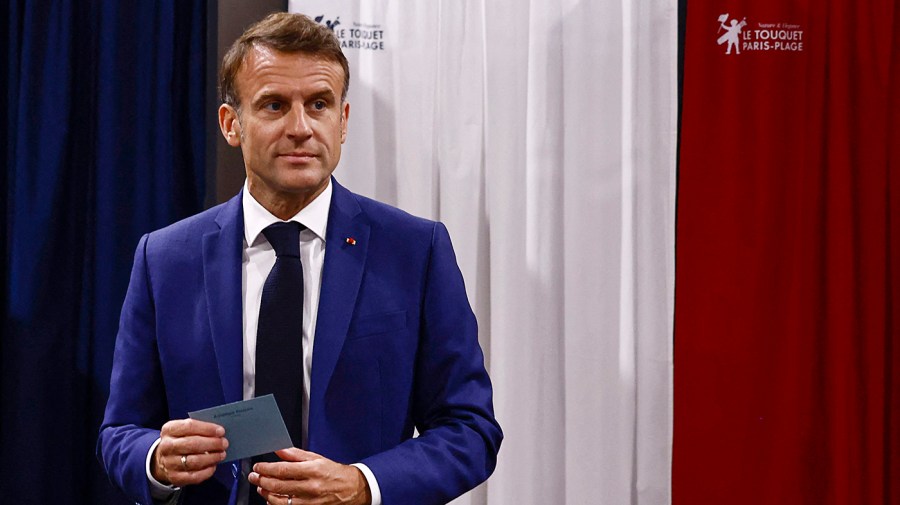Politics
Macron urges halt to arms deliveries for Gaza usage

French President Emmanuel Macron made a bold statement recently, urging nations to stop arms deliveries intended for use in Gaza. In an interview on the French radio show “Etcetera” on France Inter, Macron emphasized that France is not supplying weapons to Israel. He noted that the current focus should be on pursuing a political resolution rather than continuing the flow of arms to the region.
This call comes amid ongoing tensions, particularly following Israel’s response to the Hamas attack on October 7 last year, which has escalated into a prolonged conflict involving Hezbollah, an Iranian-supported group based in Lebanon. Macron expressed concern over the increasing potential for a wider regional conflict, stressing the importance of de-escalation.
During a press conference at the Francophonie Summit, Macron advocated for an immediate cease-fire in both Gaza and Lebanon. He highlighted the need to prevent an escalation of hostilities, protect civilian lives, release hostages, and seek diplomatic solutions that ensure the security of Israel and its neighbors. Macron asserted that continuing without a cease-fire could worsen Israel’s security situation.
His statements did not sit well with Israeli Prime Minister Benjamin Netanyahu, who responded by calling on nations to bolster support for Israel. In a video message, Netanyahu criticized Macron’s remarks, arguing that they undermine the fight against what he termed the forces of barbarism led by Iran. He called it shameful for Western leaders to push for an arms embargo against Israel.
In defense of his comments, Macron reiterated France’s commitment to Israel, describing Netanyahu’s reaction as excessive and disconnected from the longstanding friendship between the two nations.
The context of this debate is significant, as Congress has historically allocated substantial funds to Israel, with approximately $3 billion to $4 billion granted annually since the 1970s. Moreover, Secretary of State Antony Blinken recently approved potential arms sales to Israel, amounting to around $20 billion. Earlier this year, the Biden administration also paused a shipment of ammunition to the country, while the UK put some arms sales on hold due to concerns about potential violations of international humanitarian law.
As the situation unfolds, the international response to the conflict remains dynamic, with various leaders weighing in on the best paths forward for peace and stability in the region.
